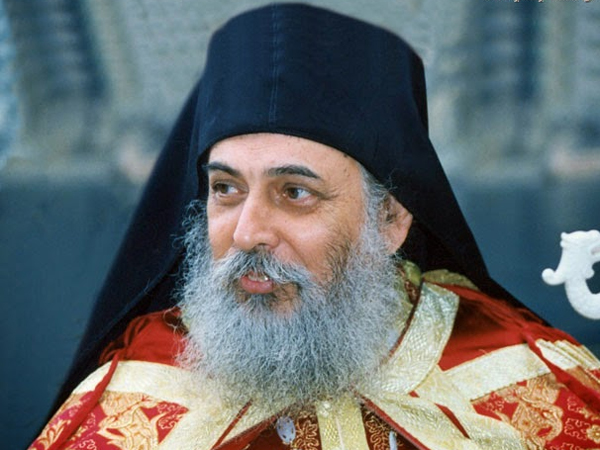Secularism (James W. Lillie)
10 Ιουνίου 2016
Today we’re facing another form of Iconoclasm: the pressure being exerted on the Church by a secularized society to adapt to its measures and ideals, so that the Church, too, will be secularized.
Secularization presents a very great danger to the Church. Instead of the Church helping the world to become like the Church, the world is attempting to influence the Church and make it more like the world. So the Church will retain its outward forms, but will lose its faith. It will suffer what Papism has, concerning which Saint Nektarios wrote:
‘Through the dogma of Infallibility, the Western Church lost its spiritual freedom, lost its adornment, was shaken to its foundations, was deprived of the beauty of the grace of the Holy Spirit, the presence of Christ. From being spirit and soul, it has ended up as a breathless body’.

The essence of secularization is anthropocentrism. The essence of the Church, on the other hand, is theanthropocentrism. If the Church loses or reduces its theanthropocentric nature, it declines into being a religious foundation or one of the religions of the world.
Secular people accept the Church as one of the religions of the world, but not as the sole truth which saves people in Christ. To this end, they try to equate our Orthodox Church with religions. This leads to a Pan-religion, through the collaboration of all religions. The aim is not the truth which saves, but peace in the world. Naturally, this ambition serves the interests of the world powers of this age, who want people to be subject to their domination and to be peaceful (i.e. repressed) through the co-operation of religions.
For the sake of peaceful co-existence, the Orthodox do not confess Christ at inter-religious encounters. So we tolerate the Church being categorized as a monotheistic religion, along with Judaism and Islam. Yet it is a fundamental teaching of the New Testament and of the Holy Fathers that anyone who does not believe in the Holy Trinity and in the incarnation of God the Word is an atheist. ‘Those who do not honour the son, do not honour the father who sent him’. ‘Those who do not believe in the son will not see life, but the wrath of God will be upon them’. And according to Saint Basil the Great: ‘Those who have not believed in the Son, do not believe in the Father’.
Original text selection in cooperation with www.agiazoni.gr
This may seem a rather extreme position on the part of the late Abbot George, who was a formidably learned man and an excellent theologian, but increasingly we see signs of his fears becoming true in the West. Already there have been ‘testing the water’ court cases, where Christians have been told that they may no longer follow their conscience. In the words of Prime Minister David Cameron ‘Equality trumps everything’. For the moment, we’re being allowed a certain freedom, but what will we do when the occasion arises- as it most certainly will- when secularists demand that we not merely acquiesce in, but actively approve of their innovations. ‘Why should a same-sex couple be deprived of the chance to have their love celebrated at a beautiful Orthodox wedding? It’s just not fair’. This is not such an outlandish scenario as it would have been not long ago, such is the power of victimhood and ‘human rights’ in today’s world.
Speaking at a recent event in Athens (25 May 2016), Metropolitan Nikolaos of Mesogaia and Lavreotiki had this to say:
‘Today, also, there’s talk- and it really is the way things are- about a contemporary and very cunning persecution which the faith and the Church are being subjected to. There are words that seem very sweet when you hear them, but are really very insidious. Words such as multiculturalism, multireligionism, human rights and antiracism. These are words that give an impression of freedom, but in essence, behind them, you can see that all the time we’re losing tolerance towards the discourse of the Church and its witness. Instead of it we have what is an initially discreet, but systematic, exclusion of it’.
And some years ago, Professor Vlasios Feidas, writing on the problems facing the Church in the 4th century, said: ‘Fourth, the complaisant or even compromising attitude towards the Arian bishops on the part of certain Orthodox bishops, either because they were afraid of the well-known, harsh measures that the state might take against them, or because they were unable to understand the theological profundity of the heretical aberration of the Arians, or because of both of these. They therefore tolerated common attendance or even concelebration between the Orthodox and Arians at the Orthodox liturgy and vice versa’. Substitute ‘Secularists’ for ‘Arians’ and, mutatis mutandis, he’s describing a situation that may not be far off, unless, as Abbot George suggests, we take a more robust stance in our defence of the faith and our ecclesiology.





